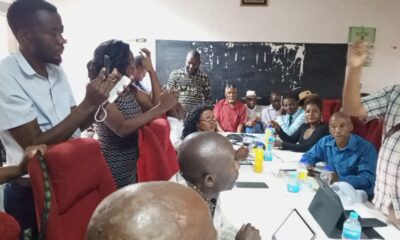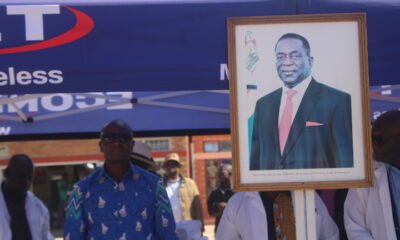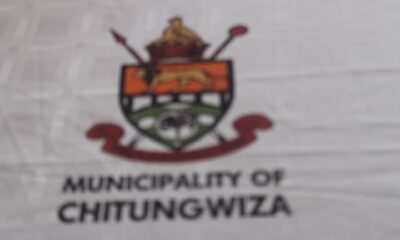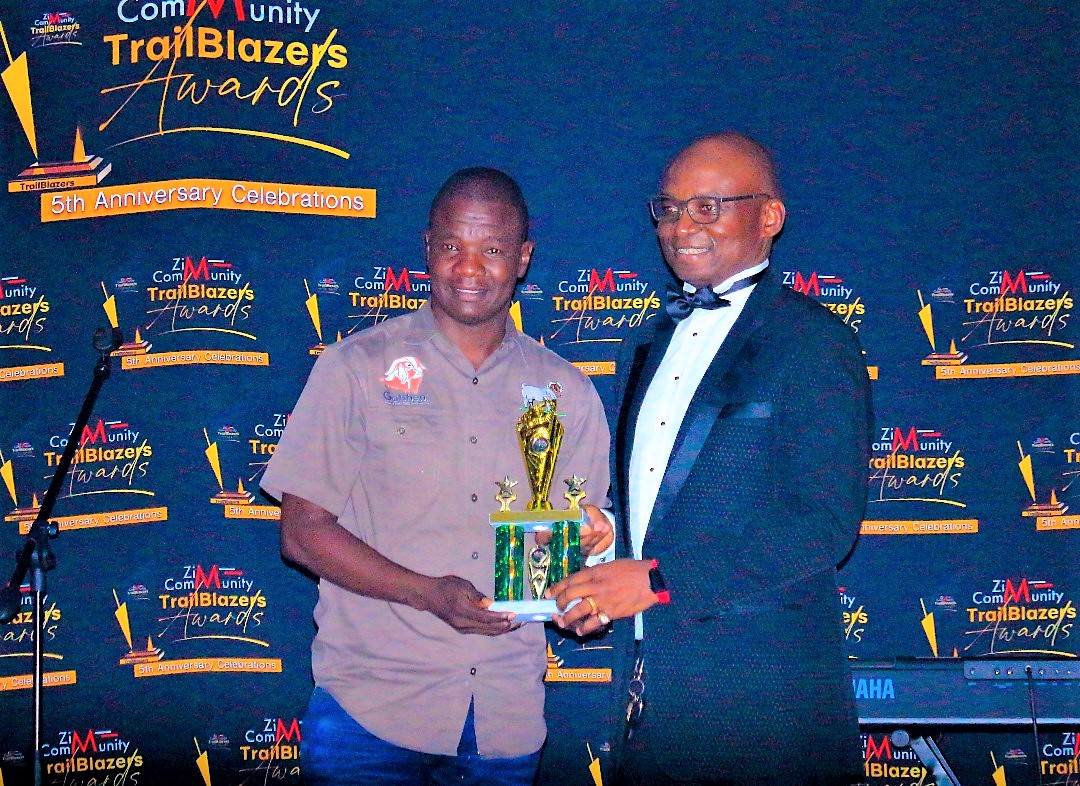Revolutionising communities
Time Chitungwiza turns tide, charms residents
For decades Chitown has earned the infamous tag of competing to be ranked among the worst-run municipalities in Zimbabwe.
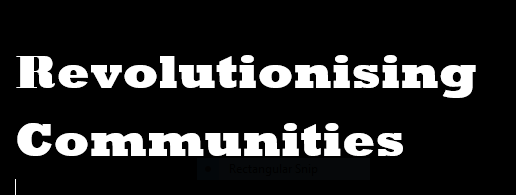
WELCOME to our maiden column aptly entitled Revolutionising Communities.
In order for Zimbabwe to achieve goals set by our government, there is a need for a mindset shift.
In this column we shall report about responses to entrenched social problems and also examine the instances where people, institutions and communities are working toward solutions.
It shall not only be about exposing the problem areas, but we shall report on potential responses to mitigate those challenges.
Therefore, focus shall not only centre on the negative, the deviant or the flaws.
Focus is not also on what may be working, but how and why it appears to be working or, alternatively, why it may be stumbling.
Our goal is to strengthen the connection between community members and our solution-based news organisation.
We are going to hit hard to drive the point home. Our apologies in advance, but this is not personal. It’s for the greater good.
It is also about catalyzing potential engagement on any issue amid growing mistrust in politics, journalism, institutions, and governments.
Today this weekly column descends on Chitungwiza.
In terms of population, Chitungwiza is one the biggest urban areas in Zimbabwe.
For decades Chitown has earned the infamous tag of competing to be ranked among the worst-run municipalities in Zimbabwe.
It is a doyen for land barons, who could easily earn a doctoral degree and above, if there was a University for the Corrupt.
Talking about universities, the town has no university of its own, no dam of its own, no civic centre of its own, no central business district of its own, and no premier league football team of its own.
All because of these professors of corruption.
What with their uncanny knack of sniffing our recreational spaces and wetlands as prime land for houses.
The have master plans to cause chaos.
Who are these land barons?
Before such a question can be answered it is without any doubt that institutionalised corruption has been the root cause of challenges bedeviling the town.
Political polarisation has also been cited as the root cause of the deplorable state of affairs in Harare’s dormitory town.
Curiously, these land barons come in various forms; pseudo politicians and councillors, greedy council officials and civic society leaders are among the prominent actors in the land cartels.
Residents complain that only in Chitungwiza can a deputy mayor illegally acquire thousands of stands with impunity.
Only in Chitungwiza can one become a councillor, get fired by their party for being corrupt, lay dormant for a while and metamorphose into a residents leader then rise to become a legislator.
When such tainted or compromised leaders are in the august House will they pass any laws that will shoot them in the foot? They ask?
Never.
Those who should be standing before the courts will never pass self-incriminating laws.
Only in Chitungwiza will a party national youth leader visit the town house when they so wish and successfully demand 10 or more stands when they so wish.
How they would do that can be explained through the famous Jersey-reruregerero-fate that later befell him and his political accomplice.
Only in Chitungwiza will a proposal for sole rights to plan, allocate and develop land by a private developer be pushed without any prior consultation of the stakeholders, chief among them the residents.
Battling a myriad of service delivery challenges, which include uncollected garbage, erratic water supplies, burst sewers, residents have given up hope of getting normal services from the local authority.
Where was the government, while this was happening or how the government was involved are the questions that would naturally arise?
We just pray that this kind of governance is over.
Our hope lies in leaders who would want to live a legacy of success.
Leaders who are able to manage their politics while strategically propelling our urban areas to greater heights in terms of development.
Such leadership goes down to local government level.
Of concern is that insufficient attention has been paid to the strategic planning functions.
That has been a cause for concern not only for the residents but to central government
Strategic management processes in municipalities are mainly determined by changes and conflicts happening in the political and social-economic environment of a country.
Any such changes should not only bring hope but make that hope a reality.
It begins with the choices residents make in choosing their leaders.
While at election time residents are enticed with great promises, successive councils have failed to charm residents in terms of service delivery?
This begs the question what can the current council do to charm residents by ensuring that there is efficient, sustainable and quality service delivery.
Does the present council have what it takes to turn around the fortunes of this town?
Are they among the council officials who possess the capacity or skill sets required to run a town sitting over hundreds of millions of dollars worth of assets?
Do they have the qualifications required for effective and efficient implementation of urban councils’ business.
Others might say it’s water under the bridge, there is no capacity among the councillors to turn the tide.
Individuals elected as councillors and permanent employees of urban councils have very low academic and professional qualifications.
But, the bottom line is that the answers lie with the councillors and officials themselves.
The onus is for them to prove otherwise, period.
They should also endeavour to acquire the necessary skills and resources to enable implementation.
Likewise the need for Chitungwiza to employ qualified and competent personnel
The ultimate goal of providing efficient and effective goods and services to the citizens is made easier with employees with higher qualifications who comprehensively understand urban problems and developmental needs
There is also a need to identify the drivers of the distress at town house and the mechanisms needed to effectively and efficiently address these.
Only a municipality that sets and pursues both short- and long-term goals in order to progressively achieve the objective of improved governance and accountability will make an impact.
By capitalising on existing strengths and resources, Chitungwiza must begin by adopting short-term measures which have the potential to yield immediate gains in municipal performance and accountability.
However, in the absence of a clear vision of how to achieve the long-term objectives and progressive steps put in place to achieve this, any short-term gains will be lost.
The professionalisation of municipal administration needs urgent attention.
The managers and administrators should be allocated appropriate monitoring and motivation mechanisms to encourage and motivate them.
It’s a tough call to entrust someone with the such assets yet they get a monthly allowance that can only buy two suits and a shoe.
Yes, they are perks such as stands, but after buying the suits, the workshop allowances can’t build anything meaningful. Herein lies the problem or the corruption-bait.
The moment the official tastes the money after disposing of their stand due to a lack of capacity to develop them, more stands are illegally acquired for sale.
For employees to perform in accordance with the mission of a municipality they need to be remunerated accordingly and in time.
How can one lock up a shop for failure to pay outstanding council rates when they have gone for months without pay.
There is no excuse for corruption but the temptations are just too much and can be managed to reduce the attendant risks.
The buck stops with the government
From the year 2000 the public institutions in general degenerated due to political, economic and social disturbances.
The deterioration involved lack of adequate funds, recentralisation of political, fiscal and economic power and responsibilities previously decentralized to local governments and poor working conditions leading to loss of qualified personnel.
The challenge of the political-administration interface within municipalities is integral to this pillar.
There is an urgent need for coherence in intergovernmental relations involving local government. The fragmentation of approaches to local government at both national and provincial levels need to improve.
Such interventions also require the support of stakeholders.
This can only succeed if there is absolute ownership and buy-in from the municipal administration, its council and its residents.
It is also envisaged that each municipality should develop its own master plan without the undue interference from external service providers.
The government must therefore ensure the process of developing and implementing the current master plan is conducted with the collective buy-in within Chitungwiza.
Finally, the implementation of the master plan requires an effective monitoring and evaluation system right from its inception in order to track and monitor progress and to enable detailed reporting.

-

 Tourism1 year ago
Tourism1 year agoAntelope Park joins White Rhino fight
-

 Breaking News11 months ago
Breaking News11 months agoZim Community Trailblazers Awards (ZCTA) Call for Entries (5th Edition)
-

 Health and Wellness1 year ago
Health and Wellness1 year agoLeaked nudes: Traumatic impact, healing pathways
-

 Entertainment4 years ago
Entertainment4 years agoCharambas ZCTA maiden winners
-

 Breaking News12 months ago
Breaking News12 months agoMnangagwa approves Starlink Zim operations
-

 Entertainment1 year ago
Entertainment1 year agoSetina Mandiveyi plots to shine
-

 Tourism1 year ago
Tourism1 year agoWhite Rhino grazing at Zim’s biggest private game reserve
-

 Zim Community Trailblazers Awards1 year ago
Zim Community Trailblazers Awards1 year agoDr Peta: First Zim to obtain Disability Studies PhD
